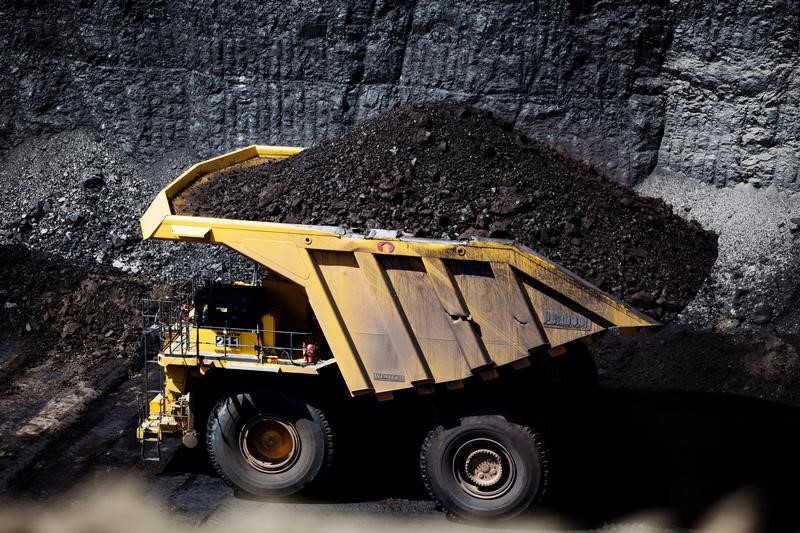(Repeats earlier story for wider readership with no change to text. The opinions expressed here are those of the author, a columnist for Reuters.)
* Graphic of China's coal imports: http://reut.rs/2faHkia
By Clyde Russell
LAUNCESTON, Australia, Aug 3 (Reuters) - China's imports of coal from the seaborne market surged again in July, providing a stark contrast to a fourth consecutive monthly decline for India.
It's possible that the market should be paying more attention to China's growing imports rather than India's downturn.
The different dynamics in the world's two largest importers of the polluting fuel are largely a reflection of juxtaposing domestic policies.
China is restricting domestic coal output and shutting inefficient mines, which, coupled with a decline in hydropower output, has boosted demand for imports.
India, which gave back the title of the world's top coal importer to China last year, has a stated policy of reducing coal imports to zero and is boosting domestic production and efficiency of distribution toward that end.
China's seaborne imports were 20.8 million tonnes in July, up sharply from 17.9 million in June, according to vessel-tracking and port data monitored by Thomson Reuters Supply Chain and Commodity Forecasts.
The July data may be slightly revised in coming days as cargoes that arrived in the last few days of the month are factored in, but this won't change the underlying message that China's imports are strong.
July will be the third month this year where seaborne imports have exceeded 20 million tonnes, taking the year-to-date total to 135.2 million tonnes, up 12 percent from the first seven months of 2016.
Looking at the breakdown of suppliers, and top exporter Australia has fared better than regional rival Indonesia, most likely because it is the major global shipper of coking coal used to make steel, while Indonesia concentrates on lower grade thermal coal.
China's imports from Australia were 8 million tonnes in July, taking the year-to-date total to 51.26 million, a gain of 15.3 percent over the same period in 2016.
Indonesia has supplied more to China, with 56.72 million tonnes in the first seven months, but this is only up 10.3 percent from the same period last year, or about two-thirds of Australia's increase.
While not a major supplier to China, it's worth noting that the United States has shipped 4.03 million tonnes in the January-July period, double the 1.96 million from the same period last year.
INDIA LOSES APPETITE
India's seaborne imports dropped 13.4 percent in the first seven months of the year to 105.36 million tonnes, with top supplier Indonesia dropping 9.7 percent to 47.29 million.
Australia saw its exports to India slip 11.2 percent to 23.66 million tonnes, with its bigger percentage decline most likely because higher prices and a longer sea voyage undercut its competitiveness against both Indonesian and other exporters.
India's imports from the United States actually increased, rising 16.8 percent in the January to July period to 6.23 million tonnes.
What the vessel-tracking data does show is that the gain in China's imports in the first seven months of 2017 of 13.6 million tonnes has not been enough to offset the decline of 16.3 million in India's seaborne purchases.
In some ways this makes the ongoing gain in thermal coal prices somewhat surprising, with the globalCOAL front-month Newcastle contract GCLNWCPFBMc1 rising above $100 a tonne this week, reaching a high of $102.50 on Aug. 1, its best level since December.
Part of the answer is likely that the rise in Chinese demand has largely been for higher grades of thermal coal, such as those most commonly loaded at Newcastle port in Australia, the world's largest export harbour for the fuel.
It's further likely that much of the reduction in India's imports have been for lower-quality Indonesian coal, which would struggle to find buyers elsewhere.
This makes watching China's imports key for the outlook for prices, since this appears to be driving the market more than India's slumping appetite for coal.
(Editing by Christian Schmollinger)
